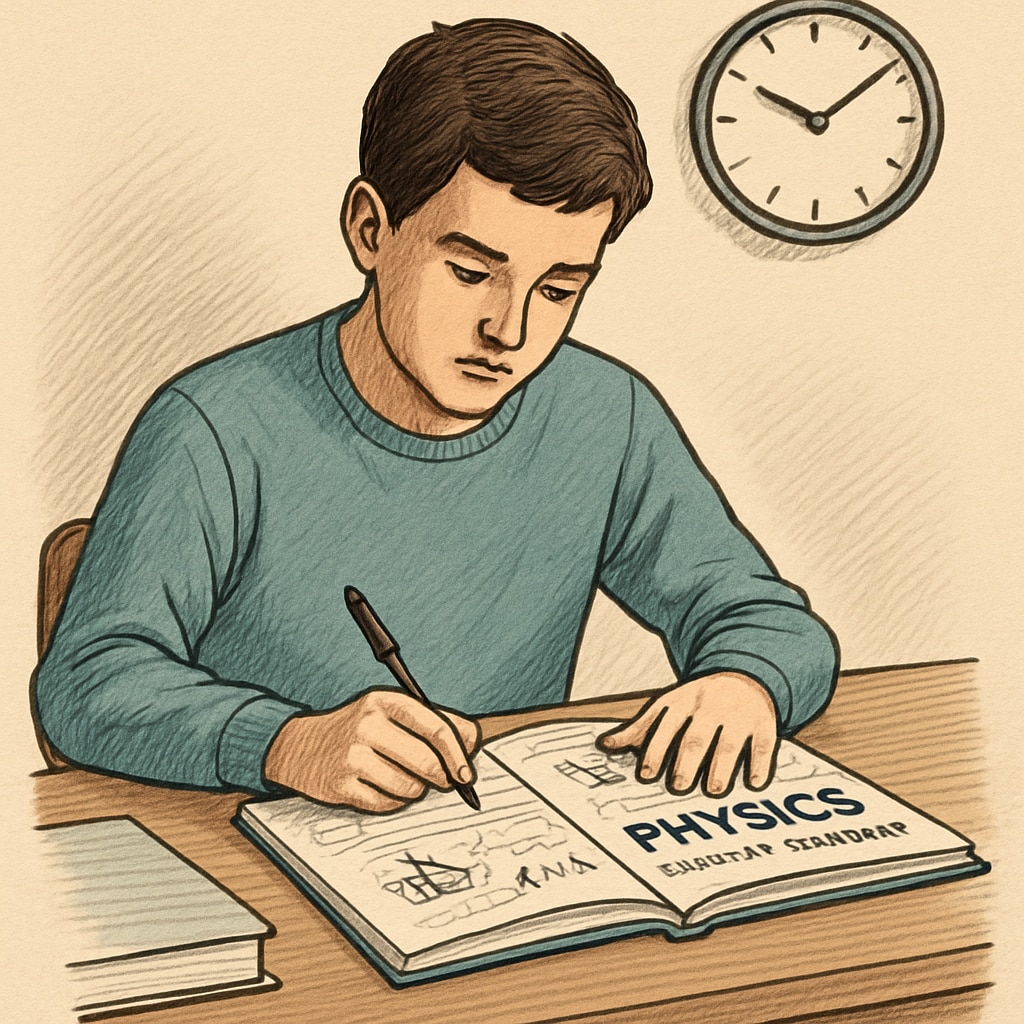Struggling with physics backlogs, time management, and exam preparation is a common challenge for high school students. Physics, with its complex concepts and problem-solving nature, can overwhelm learners when assignments and topics pile up. However, with the right strategies, it is possible to tackle these backlogs effectively, manage time wisely, and prepare for exams with confidence. This guide offers actionable steps to help students navigate their physics challenges under tight deadlines.
Understanding the Impact of Physics Backlogs
Before diving into strategies, it’s essential to understand the implications of having multiple physics backlogs. Falling behind on topics can create a domino effect, making it harder to grasp advanced concepts that build on earlier lessons. For example, understanding kinematics is critical for mastering dynamics. Moreover, unresolved backlogs can lead to stress, reducing your focus and overall productivity.
To break this cycle, start by identifying the root causes. Are you struggling with foundational concepts, or is it primarily a time management issue? By pinpointing the problem, you can tailor your approach for maximum efficiency.

Time Management: The Key to Clearing Backlogs
Effective time management is crucial when dealing with multiple backlogs. Begin by creating a realistic study schedule. Instead of cramming, allocate short, focused study sessions to specific topics. For example, dedicate 30 minutes to reviewing Newton’s laws before moving on to solving related problems.
Here are some practical tips for managing your study time:
- Prioritize tasks: Focus on the most critical topics that are frequently tested or form the base for advanced concepts.
- Use the Pomodoro Technique: Study for 25-minute intervals with 5-minute breaks to maintain focus and prevent burnout.
- Set milestones: Break down your backlogs into smaller, manageable goals, such as completing one chapter per day.
By consistently following a structured plan, you can make steady progress and reduce the overwhelming feeling of having too much to catch up on.
Mastering Physics Concepts for Exam Success
When time is limited, prioritizing understanding over rote memorization is essential. Physics requires a strong grasp of concepts to apply them effectively in problem-solving. Start by reviewing the foundational principles in each topic. Use resources like Physics on Wikipedia for quick refreshers and reliable explanations.
Consider the following strategies for mastering physics concepts:
- Use visual aids: Diagrams, flowcharts, and videos can make abstract concepts more tangible and easier to understand.
- Practice actively: Solve problems regularly to reinforce your understanding and identify areas of improvement.
- Seek help: Don’t hesitate to ask teachers, peers, or online forums for clarification on challenging topics.
In addition, leverage past papers and mock exams to familiarize yourself with the question patterns and time constraints. This will boost your confidence and improve your exam performance.

Combining Resources for Efficient Study
Making use of diverse resources can significantly enhance your preparation. Textbooks, online platforms, and interactive simulations can provide different perspectives on the same topic. For example, platforms like Physics on Britannica offer in-depth articles that complement classroom learning.
Here are some resource recommendations:
- Textbooks: Stick to your curriculum-approved books to avoid unnecessary confusion.
- Online tutorials: Websites like Khan Academy provide free, high-quality physics lessons.
- Study groups: Collaborate with classmates to discuss and solve problems together.
By combining these resources, you can gain a well-rounded understanding of physics and tackle backlogs more effectively.
Final Thoughts
Clearing physics backlogs, improving time management, and excelling in exam preparation may seem daunting, but with a strategic approach, it is entirely achievable. Focus on understanding core concepts, manage your time effectively, and utilize diverse resources. By staying consistent and motivated, you can overcome challenges and achieve success in your physics studies.
Remember, the key lies in taking small, consistent steps and celebrating your progress along the way. Good luck!
Readability guidance: Use short paragraphs and lists to summarize key points; maintain a balance between practical tips and theoretical insights. Avoid overusing technical jargon and ensure sentences flow naturally with proper transitions.


